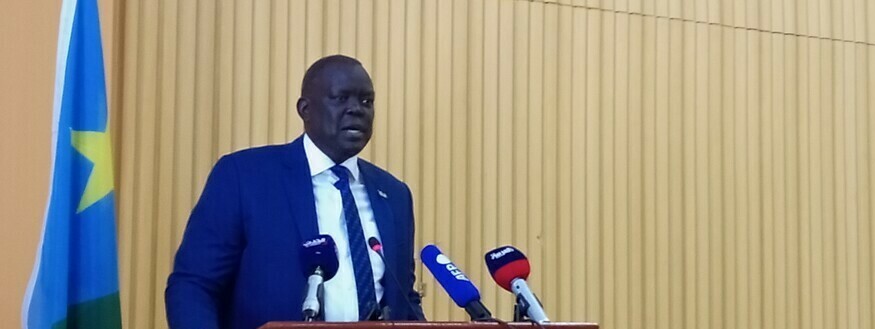South Sudan government said on Monday that it has removed all illegal checkpoints across the country in an attempt to facilitate humanitarian aid delivery to vulnerable communities.
This comes after a report by the U.S. State Department released early this week in which it described South Sudan as one of the most dangerous places for aid workers.
The report on United States Policy toward South Sudan said between January and early February 2023, eight humanitarian workers were killed, compared to nine humanitarian workers killed in 2022 and five in 2021.
The report says that since the start of South Sudan’s conflict in 2013, over 150 humanitarians, predominantly South Sudanese, have lost their lives while providing assistance to people.
In his response to the report, Acting Minister for Foreign Affairs Deng Dau Deng said that all impediments to the delivery of humanitarian aid, including illegal checkpoints, have been removed. He assured that aid workers all over the country would be protected as they delivered assistance to vulnerable communities across the country.
“Government has increased the capacity of helping the humanitarian aid workers who deliver services across South Sudan. We had a very lengthy discussion with the UN on how to improve the movement of the services across South Sudan, including removing all illegal checkpoints both at riversides along the Nile and areas away from the Nile,” Deng told reporters after meeting heads of Rome-based UN Agencies in Juba on Monday.
The U.S. report also accused the Revitalized Transitional Government of National Unity (RTGoNU) of continued failure to implement essential commitments under the Revitalized Agreement on the Resolution of the Conflict in South Sudan (RARCSS) and has repeatedly failed to meet critical milestones in a timely manner.
It claimed that political elites are deeply vested in maintaining a status quo that allows them to accumulate political power and economic resources at the expense of the people of South Sudan.
Further, the report says that competition for political power and economic resources manifests in fighting between proxies, with political sub-factions manipulating ethnic and communal tensions to their advantage, often leading to violence.




